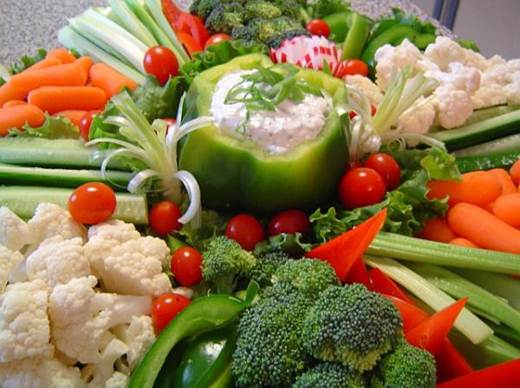Editor Mandie Gower, 35, sticks to
an organic-only diet at home.
‘Perhaps
the BSE scandal in my teens set me off, but I became curious about what’s
actually in our food long before organic became trendy. My mum used to tell us
the eggs and meat she bought were from “happy chickens” but it wasn’t until I
was diagnosed with polycystic ovarian syndrome (PCOS) in my early 20s that I
converted to eating almost exclusively organic. I was already uncomfortable
with animals being given antibiotics and hormones to make them grow bigger and
faster, but learning of my own hormone imbalance and the links with infertility
and diabetes, was a watershed moment. With limited treatment options but a
clutch of nasty symptoms (spots – great), knowing I wasn’t adding my liver with
pesticides instantly made me feel more in control.
Around
80% of the food in my cupboards is now organic but there are times I’ve been
less strict (such as while breastfeeding, when what I ate came second to how
much!), or when I’ve only had the budget to buy a few organic items (dairy
products, especially milk, are my non-negotiables). I’m flexible when I’m not
at home, but I have no-go areas; if it’s not organic chicken, I’ll pass. In
fact, friends often forget I’m not vegetarian. Being a non-red-meat eater I’ll
happily get my protein from lentils in restaurants, and I’m never going to RSVP
to a wedding saying “only eats organic chicken!”
My
weekly Abel & Cole box has made my life easier – and cheaper. It’s also
made me more adventurous and inventive; I’d never have bought a Jerusalem
artichoke or fed my baby Sharon fruit before! I’ll add essentials like meat and
milk to my order, and supplement it with a visit to Ocado, which has an organic
channel to make finding everything easier. Yes, organic can be expensive, but
it means I only buy what we need rather than grabbing multi-offers that will
only end up in the bin.

Organic
food remains a much debated topic, and while recent studies show it has higher
levels of vitamins, over tine, other benefits have become important to me, too.
It’s kinder on animals, better for the environment, end even bog-standard
basics taste better. Give organic baked beans a go and I defy you not to tell
the difference!’
Mandie’s simple steps for going
organic
Order a weekly veg box
‘It’s
low cost, convenient (you don’t have to be in when they deliver) and comes with
tips for what to do with any unusual contents. Abel & Cole’s crispy
“Seaweed” kale recipe is delish and takes just two minutes. Veg boxes start at
£9, mixed fruit and veg at £12, from abelandcode.co.uk.’
Pick and choose
‘If
you’re on a tight budget, skip the organic aisle when buying fruit and veg with
a very thick peel, such as grapefruit and avocado, as the skin protects the
flesh from pesticides, and go organic on the others (such as spinach and
tomatoes), plus dairy and meat.’
Knowing exactly what you’re buying
‘The
Soil Association has the most stringent criteria, so if a food products
accredited by them, you can be guaranteed it’s as organic as it gets.’